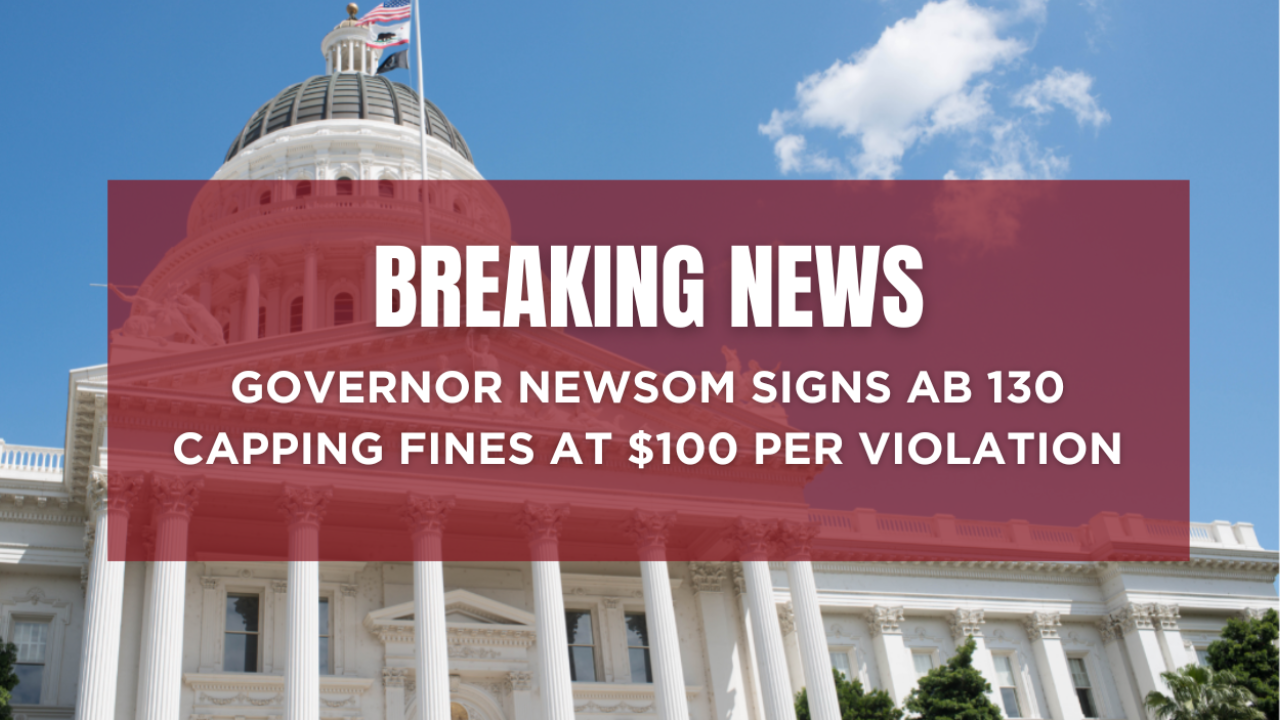Governor Newsom Signs AB 130 - Cutting Back on CID Enforcement Rights
Jul 02, 2025
AB 130 (Housing) caps association fines at $100 per violation effective immediately — with exceptions only for health and safety concerns.
Late Monday, June 30, 2025, Governor Gavin Newsom signed into law AB 130, which immediately amends Civil Code Sections 5850 and 5855.
The new law significantly limits a community association's ability to enforce its governing documents by capping fines at $100 per violation, unless the violation “may result in an adverse health or safety impact on the common area or another member’s property.” Such a finding must be expressly included in the rule if a larger fine is to be specified.
Section 5855 further limits an association’s enforcement ability. Under a new addition to 5855, members may not be disciplined so long as they cure the violation prior to the hearing or provides a financial commitment to cure the violation (if curing the violation takes time). Furthermore, if the homeowner disagrees with the disciplinary action taken, they may demand Internal Dispute Resolution, which essentially amounts to a rehearing with one or more directors.
These changes were amended into AB 130 on June 27, 2025, and passed into law just three days later without committee hearings or opportunities for public comment.
The changes were swiftly inserted into a major housing bill supported by the Governor, and were not the primary focus of the bill. While this method of changing the law is unseemly at best, as of July 1, 2025 these changes are now law, just a few days after they debuted in the bill.
What This Means for Community Associations:
- All associations must review and revise their current enforcement and fine policies to ensure compliance with the new law. These changes do not require the two-step 28-day process of normal rule changes because this would be a change to conform to law, under Civil Code 4355(b)(4).
- Boards and managers are encouraged to consult legal counsel to evaluate their association’s current fine schedule and enforcement procedures and consider additional strategies to preserve enforcement authority under the revised statute.
At Richardson | Ober, we are ready to assist you in navigating these sudden legal changes and updating your documents accordingly. Our attorneys will also continue to work alongside CAI-CLAC to develop a long-term legislative strategy for 2026 to address the challenges created by this law.
Stay tuned for a comprehensive legislative update from our team coming soon.
For real-time updates on legislative news, events, and compliance resources, follow us on LinkedIn, Facebook, Instagram, and X. You can also subscribe to our newsletter below for the latest developments affecting community associations across California.





